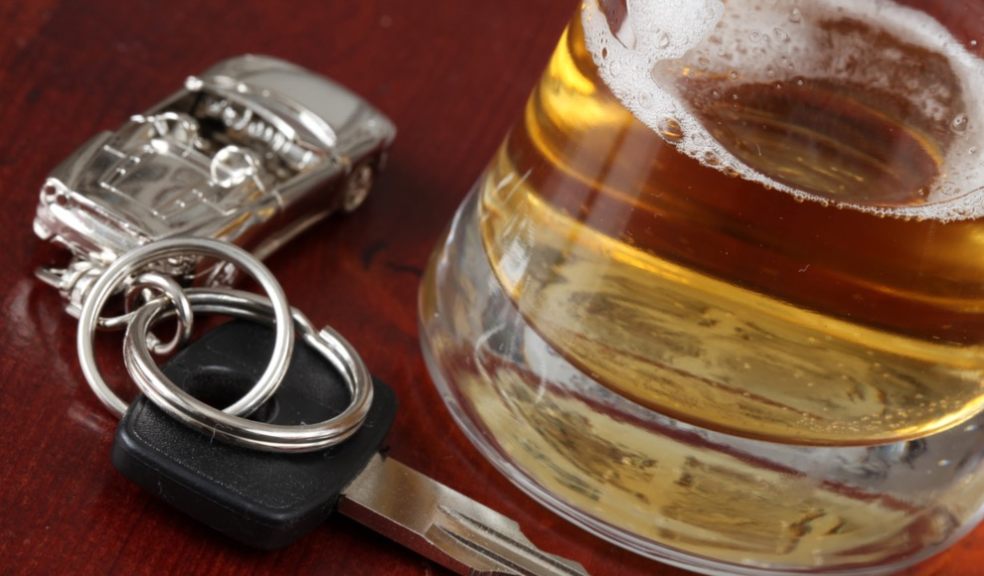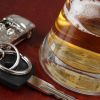
One in ten Brits admit to knowingly driving home over the limit from a Christmas party
- 1.6 million UK motorists (4%) have knowingly driven home over the limit after a Christmas party on more than one occasion
- Men are significantly more likely to drink-drive at Christmas than women. Almost one in five men have done so (17%), compared to just over one in 20 women (6%)
- One in five drink-drivers (19%) said they drove home over the legal limit as ‘they didn’t think they’d get caught’
- Over the last five Christmas periods, almost 5,000 drink-driving related collisions have been recorded in November and December alone, according to DfT statistics
A staggering 4.5 million UK drivers - the equivalent of one in 25 people - have broken the law by driving while under the influence after attending a Christmas party, a new study has found.
The research, conducted by the experts at iCompario, surveyed 2,000 UK adults who drive about whether they had ever knowingly driven home over the legal drink drive limit following a Christmas party or event, and their reasons for this.
Even more shocking, 1.6 million UK motorists (4%) have knowingly driven home over the limit after a Christmas party on more than one occasion
The findings also highlighted that men are much more likely to drink-drive at Christmas than women. Almost one in five men have done so, compared to just over one in 20 women (6%).
One in seven (13%) admitted that whilst they haven’t driven home from a festive do over the legal limit, they have got into the car with someone who was.
Drivers in London are the most likely to have driven home from a festive event while drunk, as almost one in five living in the capital (18%) have done this at least once.
A similar number of Belfast residents have also driven home over the legal limit (17%). The Northern Ireland capital recorded the second highest number in the UK.
UK cities with highest percentage of residents who admit they have driven home from a festive party over the limit, on at least one occasion:
London - 18%
Belfast - 17%
Liverpool - 16%
Bristol - 14%
Norwich - 13%
Newcastle - 13%
Leeds - 10%
Cardiff - 10%
Nottingham - 8%
Birmingham - 8%
Leeds locals are the most likely to be repeat offenders, with seven percent of people in living the West Yorkshire city admitting to driving home from a festive bash whilst over the limit on more than one occasion.
In contrast, Mancunions were found to be the best behaved. Just two per cent admit to drink-driving after a Christmas party, less than any other city.
When quizzed about their reasons for having driven over the legal limit in the past, one in five drink-drivers (19%) said ‘they didn’t think they’d get caught’.
However, the most common excuse given was that they were unable to get home any other way (43%).
Almost one in three drink-drivers (30%) said that they were ‘too embarrassed to ask a friend’ for assistance.
Less than ten percent put it down to monetary reasons such as being unable to afford a taxi or wanting to save cash (7%).
iCompario also surveyed UK adults on how comfortable they would feel about stopping someone they suspected of being over the limit from driving home after a party. More than a quarter of Brits said they did not feel as though they could do so themselves (26%).
That said, one in eight (12%) of those who didn’t feel comfortable having this conversation said they would be happy to report that person to the police instead.
Regionally, Glasgow was found to be the city with the highest number of residents who would not feel comfortable in personally attempting to stop another person drive home drunk from a party (44%).
UK cities with the largest no. of people who say they would not feel comfortable stopping another person from driving home drunk:
Glasgow - 44%
Belfast - 38%
London - 30%
Newcastle - 30%
Edinburgh - 30%
Nottingham - 30%
Birmingham - 27%
Southampton - 27%
Cardiff - 21%
Norwich - 21%
According to DfT statistics, having been declining in the early 2000s and 2010s, drink driving incidents have been on the up since 2014.
This is still a large decrease on the 5,630 serious collisions recorded in 1979 – the worst year on record for drink-driving accidents.
That said, over the last five Christmas periods, almost 5,000 drink-driving related collisions have been recorded in November and December alone.
Kerry Fawcett, Digital Director at iCompario said: “These findings are a real eye-opener to how big an issue drink-driving remains in the UK, with the findings seeming to suggest that the festive period is particularly problematic, with millions of us catching up with colleagues and friends for a drink before the big day.
“Whilst many of us will be looking after our spending around this particular Christmas time, the extra expense on a taxi or organising a lift from a close one is absolutely the right thing to do. Many drink drivers convince themselves that they will be ok to drink-drive just once – but even one time is enough to jeopardise the lives of yourself and others and risk a custodial sentence.”













